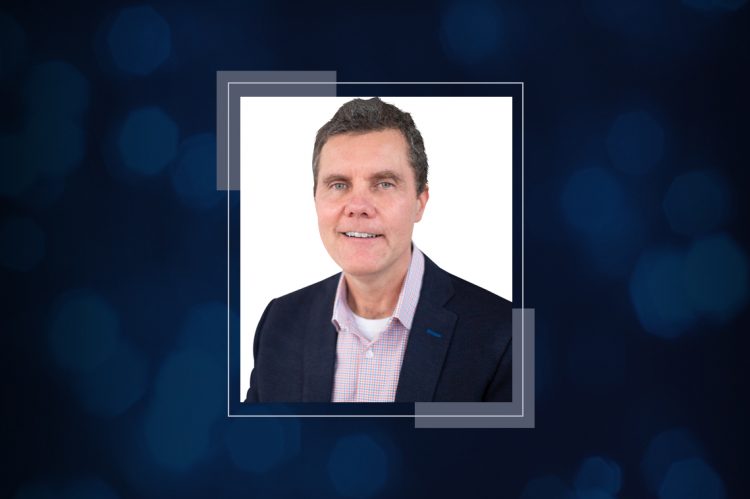In an overheated real estate market, much of the current conversation is around inventory shortages, record-setting sales prices and the sheer number of transactions. What is talked about less perhaps, is experience. And that’s true on both the business and consumer side of any given transaction.
One company who places a lot of emphasis on experience is eXp Holdings, a global enterprise that in less than 10 years has scaled to roughly 70,000 agents worldwide, with more than 60,000 within its U.S. subsidiary eXp Realty.
The company’s rapid growth has not gone unnoticed within the industry, nor has its staggering goals over the next five years, which were announced at the company’s recent event in Las Vegas, Nevada, where about 6,000 of its agents we’re in attendance.
We wanted to better understand what’s behind the company’s meteoric rise, so we sat down with eXp Realty CEO, Jason Gesing, in San Diego, California, at this year’s National Association of REALTORS® Conference & Expo, to learn more about the company’s ethos and objectives going forward, as well as how it plans to become a dominant force in residential real estate.
Caysey Welton: Let’s start by talking about your rapid ascension as a company. Not only are you expanding your footprint, but you now have roughly 70,000 active agents in your network. What’s driving this growth?
Jason Gesing: I think there are a couple things. I think the first thing is that we figured out how to build community without the costs that are typically associated with building community. People want to be around people and get ideas from them. They want to share and learn or talk about the football game. That’s where the office experience has always brought value. I think as more and more information has gotten into the hands of the consumer, the less the consumer has come into the office. So that value eroded over time and then the pandemic pretty much wiped it out in a period of months. So, I think our platform has really allowed us to restore the community and the value of the office experience, regardless of where somebody is.
CW: So you could almost say your business model was already equipped to handle the unique challenges of the pandemic?
JG: Yes, we were very fortunate in that sense.
And the second thing that has driven that growth is in 2013, we acquired a public company and merged into it so that the agents would be shareholders of the brokerage and of the public company just by doing the things they were already doing—closing the first transaction of the year, helping the company grow, capping. So, we’ve been able to drive a lot of wealth into the hands of our agents and culturally, that’s had a huge impact.
We just had our conference in Las Vegas, and I must have had three or four agents coming up with opportunities with technology or new systems and some of them were phenomenal, but I don’t think they’d come to us with those ideas and solutions if they weren’t shareholders. Rather than turn and leave if things get challenging, they’re going to want to pitch in and help.
CW: Speaking of acquisition, is that part of your forward-looking growth strategy as well?
JG: We don’t acquire brokerages. But we have done a couple acquisitions. We acquired Showcase IDX about 18 months ago. We acquired Success Enterprises, which includes Success magazine, all of its digital assets and trainings. Virbela, which is the platform we use that’s built on the unity gaming engine.
We also just launched a commercial division and we’re really excited about it. It launched almost a year ago and has 500 agents.
CW: So that piece is still in its infancy compared to the residential side…
JG: It is. There are going to be fewer commercial agents than residential agents, but I think the spread or delta on what agents are accustomed to in terms of a financial package, is identical to our residential split. Eighty percent of a commission split with a cap model in place we think is a pretty significant game changer.
Our goal is to find some ‘capital C’ commercial people, and we’re getting those folks. But what will take time is true commercial practitioners to recognize that this isn’t a residential firm. It’s a completely separate entity with separate tools—some really great tools. We’ve been doing quarterly training classes and a certification program. We’ve been getting around 1,800 students, so we’re really excited about it.
CW: Do you see any competitors in the space that have a similar business model? If so, what sets you apart from them to give you a unique value proposition?
JG: There are certainly a couple companies who have taken elements of our model and incorporated them into their business. Equity is certainly one; and there are other companies who have a revenue-sharing program, but not as deep as ours or as aggressive or lucrative. But there are elements that people are using because they are seeing that it works. That’s flattering. There’s plenty of agents and plenty of business for everybody.
I think the one thing that differentiates us is that the reason we succeed is we do what others don’t do. So, you’re missing that element if you’re trying to replicate us.
CW: How is the consumer experience different with eXp compared to your competitors?
JG: We’re attracting phenomenal agents. We’re very well represented. We’re really bringing people into the company who drive results with hundreds of transactions, billions of dollars in sales volume and just really big numbers.
I think consumers also like employee-owned companies. This is an agent-owned company and I think that enforces the perception that the agent is going to care.
We also have some tools that we introduced prior to the pandemic that were helpful during the pandemic. From virtual showing tools to our iBuyer program.
I know iBuying has been in the news quite a bit, but right now, out of our 68,000 agents, we have about 6,700 that are Express Offer Certified, which is our program. We don’t buy the house, so we don’t take the inventory risk. Instead, we built a platform where we have institutional buyers in all 50 states, which is somewhat unique since iBuyers tend to be in markets where the housing stock is homogenous. But we’re everywhere from New England to California and those iBuyers are putting buy boxes into the platform and our agents are uploading properties that they identify into the platform; I would say about 50% of the time the iBuyer does make an offer on the property. But 99% of the time it’s going to result in a traditional listing.
CW: So, it’s a great lead generator as well.
JG: Absolutely. We’re generating leads at a pretty good clip now.
CW: Your agent pool is growing so fast— tell us about your recruitment strategy and what you look for in an eXp professional.
JG: I think any eXp agent, irrespective of their technological aptitude, they see where the industry is headed; they want to be part of it; they want to stay at the forefront of it. Courageously, they’re going to take a leap and be part of it. But really, it’s somebody who isn’t afraid to think about what’s possible. Sometimes that’s frightening, but overall, for those who have made the leap, it’s fantastic.
We also have the agents who were born with a headset and are ready to go and don’t need any adjustment or acclimation. But I think for the majority of the agents in the business, they are either part of the shift or they see where the shift is taking them.
CW: So, you lead with product first?
JG: We do. But corporately we don’t recruit. We don’t really have a growth operation in-house, picking up the phone asking agents to join the company. It’s all organic and in the hands of our agents. So, if we get good agents, we know they know other good agents and they’re heavily incentivized through our revenue sharing program to go out and get them and bring them into our company.
We really do everything we can to put as much money into the hands of the agents so they can make the decisions for their business. We’re not anti-office, but I don’t want to tell an agent they need to subsidize my decision to open up 6,000 square feet when nobody was coming into the original 2,000. That’s happening all the time, so you just don’t want the agent to have to pay for it.
CW: The other side of it, of course, is how do you keep your agents, especially without traditional contracts?
JG: The reason we keep them and the way we keep them is through net promoter surveys. Every quarter we issue a survey at every stage of the agent’s lifecycle—from the time they’re onboarded to when they close a transaction to the payment on that transaction—on a scale of zero to 10 how likely are you to recommend eXp to somebody else in the industry, just based on the experience and not how much money you made. Did we pay you on time? Did we pay you accurately? Was the onboarding experience good? We have an entire team and all they do is look at those scores on a daily basis, so we can close the loop and keep those scores up around a seven, eight or nine. From there that growth will take care of itself.
We don’t engage in multi-year contracts, however. We’ve found when you do that as soon as the contract is up, they’re out.
CW: Let’s look ahead a bit. How’s 2022 and beyond looking from your perspective?
JG: There’s such a short supply that there will continue to be price appreciation, albeit at a tapered rate than what we’ve seen. Rates certainly appear as they are going to go up and that will make buying difficult for more people.
On the investor side, inflation is a great thing if you’re able to be in the position to borrow at low rates or buy with cash. So, I think there will be a lot of activity but at the end of the day there’s too much shortage in supply for the market to do what it did before. In past downturns there’s always been something that precipitated it, but I can’t think of anything right now pointing us in that direction.
I do think that if the market does go down significantly, you’ll see some of the smaller or discount players suffer a little bit. When it comes to a down market, consumers are less price conscious; they want somebody who’s going to get the job done.
I think for the industry overall, increasingly, you’re going to have a chasm between those who are tech proficient and those who have refused it. I don’t know where that goes or how wide it is though.
CW: What about for eXp. What’s the future look like for you?
JG: In Las Vegas our CEO Glenn shared our goal that we’re going for 500,000 agents in five years and 50 companies. We did the math on it, and since 2012 we’ve been growing at a clip of greater than 50% per year, so if we keep that pace in five years, we’ll be at about 560,000.
For more information visit https://exprealty.com/.
 Caysey Welton is RISMedia’s content director. Email him your real estate news ideas to cwelton@rismedia.com.
Caysey Welton is RISMedia’s content director. Email him your real estate news ideas to cwelton@rismedia.com.












